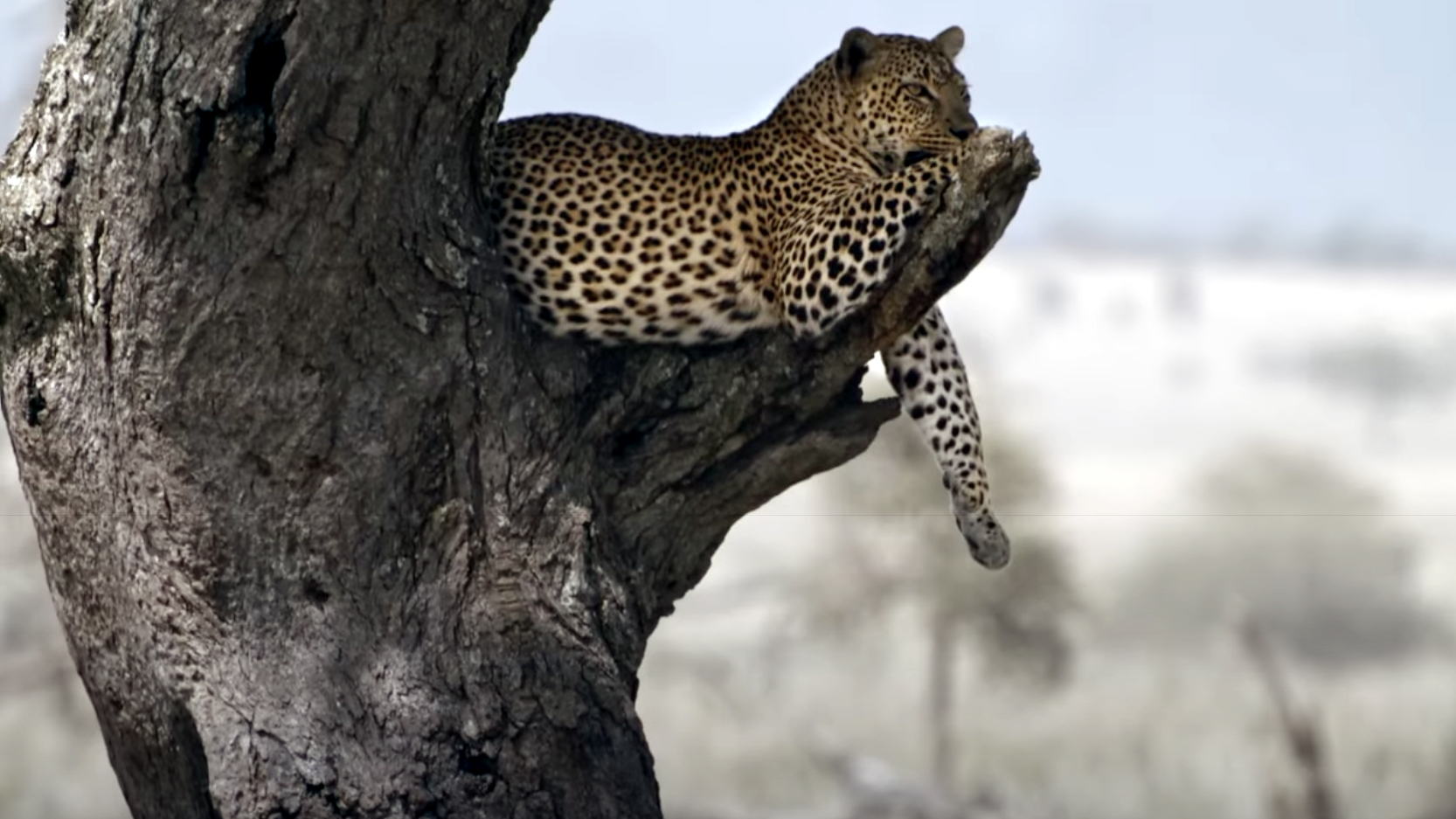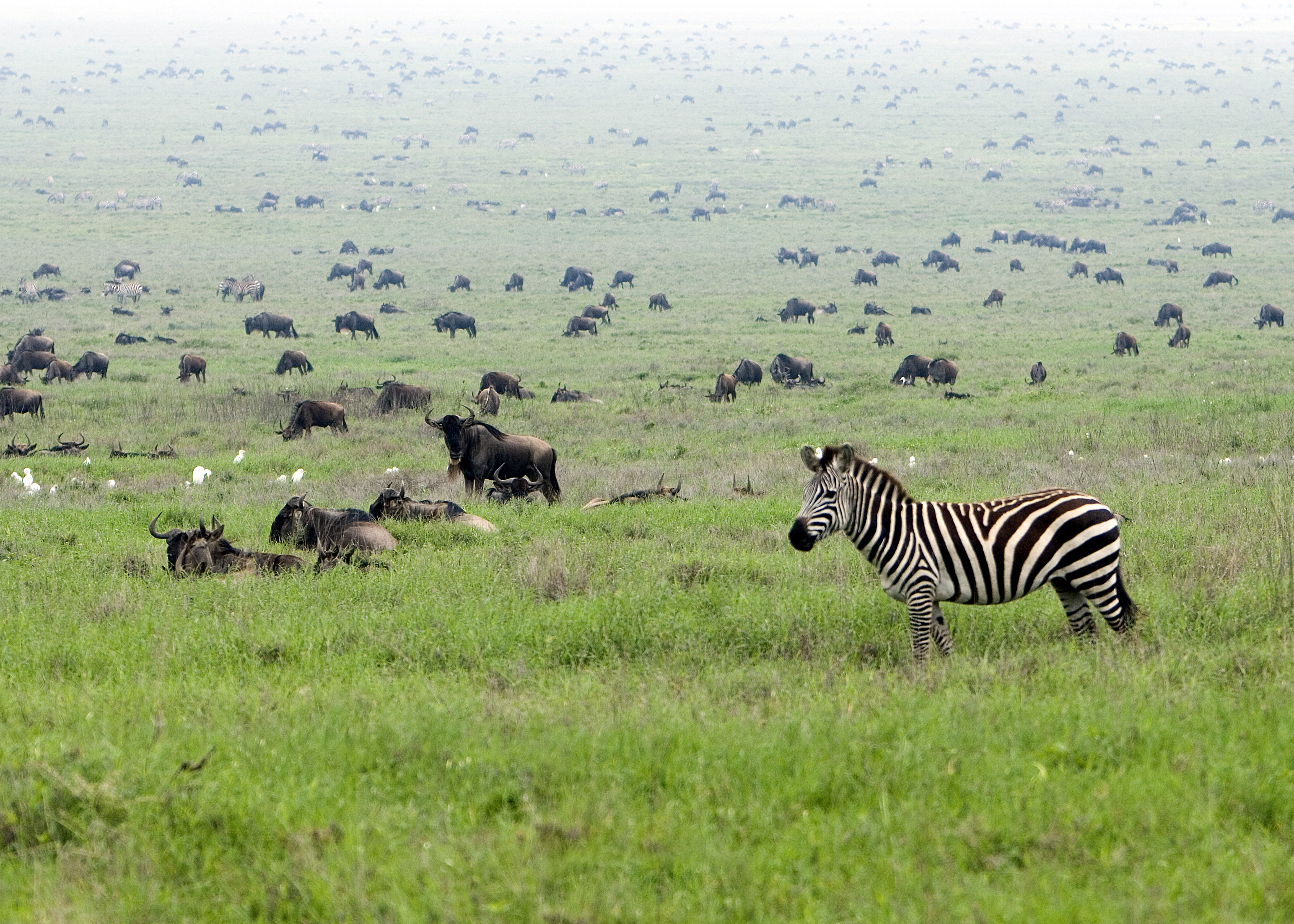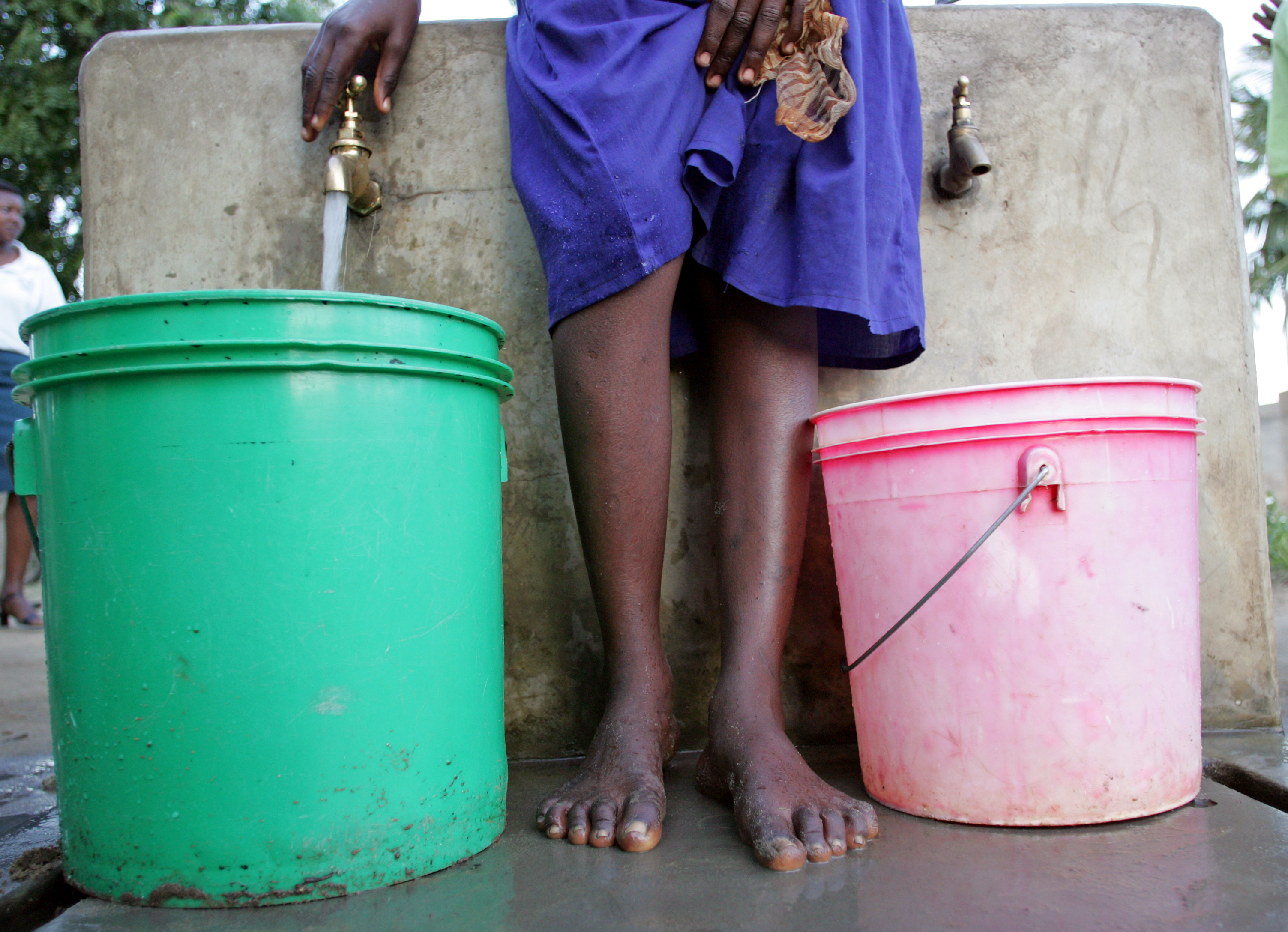Core area “Conserving nature and natural resources, protecting life on Earth” Securing water supply, preserving protected areas
In Tanzania, access to safe water is one of the biggest development challenges. Despite the considerable progress made, around 40 per cent of the population has no reliable access to drinking water. In addition, population growth is putting increasing pressure on the availability of water. The consequences of climate change are exacerbating the situation. Long periods of drought and heavy rainfalls put a burden on water sources and distribution networks. The agricultural sector, which accounts for almost 90 per cent of the water consumed, is especially hard hit. Periods of drought and flooding lead to annual losses in the agricultural sector of approximately 200 million US dollars.
At the same time, Tanzania plays a key role in protecting globally important ecosystems. The country is home to six of the world’s 25 biodiversity hotspots. More than a quarter of the country’s land area is designated as protected – from the savannah of the Serengeti to the wetlands of the Selous. These protected areas are not only places where endangered species find refuge; they are also essential with regard to the country’s water and resource security. Forests, grasslands and wetlands store water, prevent erosion and provide the basis for agricultural yields.
However, the protection of ecosystems is under massive pressure. Population growth, illegal deforestation and conflicts about land use at the borders of parks are threatening many of the protected areas. The expansion of agricultural land, partly for subsistence farming and partly for commercial use, is penetrating deeply into sensitive ecozones. Climate change is making this situation worse as well. Droughts result in lower water levels in rivers and wetlands while flooding leaves soils depleted. Additional challenges arise from poaching and trade in wildlife, which continue even though controls are tight. In some regions, the conflict between humans and animals is worsened by the fact that elephants or predators go into villages in search of water and food.
Goals for the sector
Zebras and wildebeest in the Serengeti in Tanzania
Germany’s development cooperation with Tanzania protects nature and vital natural resources under the increasingly difficult conditions caused by climate change. The aim is to preserve ecosystems, conserve biodiversity and improve water security. It is key in this context to ensure the participation of the local population. Participation in decision-making, alternative sources of income and just participation in revenues generated from nature conservation and tourism aim to lessen the conflicts between people and nature. The various projects unite ecological stability with social and economic development – and range from strengthening regional institutions to supporting local communities.
Project examples
- Efficient water use and fair tariffs are the focus of cooperation with Zanzibar’s Ministry of Water. This work involves strengthening the competencies of relevant institutions, reducing water loss and employing digital tools for groundwater monitoring.
Public water supply in Tanzania
- Rapidly growing regional cities benefit from targeted efforts to improve water supply – through infrastructure expansion and measures to strengthen the responsible institutions. In Babati, some 300,000 people are benefiting from new pipes and public standpipes, while school toilets and sanitation facilities in people’s homes are being modernised in all the towns involved.
- Measures taken to make the cities of Singida, Sumbawanga and Mpanda more resilient against climate change involve training experts, using digital tools to analyse the impacts of climate change and strengthening partnerships between the public and the private sector. This creates practice-oriented, climate-adapted water and sanitation solutions.
- Public training institutions in Zanzibar are being strengthened and enabled to teach trainees practice-oriented skills in water and wastewater technology.
- The Investment Financing Facility (IFF), an innovative financing tool, is giving water utilities in Tanzania access to local bank loans for the first time. This is enabling them to implement smaller investments – for example installing new water connections or exchanging damaged pipes – without having to rely on public funds.
- The African Forest Landscape Restoration Initiative AFR100 Programme, led by FAO with partners, among them Germany, supports the rehabilitation of degraded land supports the rehabilitation of 5.2 million hectares of degraded land, including forests, pastures and agricultural land in the Monduli and Karatu areas. The project promotes local actors ranging from communities to Indigenous groups and producer organisations, and strengthens their role in rehabilitation measures.
- A key focus of German development cooperation is the sustainable improvement of the water quality of Lake Victoria and strengthening cross-border management of the catchment area. The central aim is to build expertise around nature-based solutions within the Lake Victoria Basin Commission and among member countries and to implement concrete wastewater and sanitation projects in Kisumu, Mwanza and Kampala. At the same time, the Commission is being empowered to monitor water quality with modern IT systems and coordinate joint measures for upgrading and developing infrastructure.
- Projects on nature conservation contribute to strengthening protected areas such as Selous, Nyerere, Serengeti, Mahale and Katavi and bordering utilisation zones. These projects improve the management, infrastructure and equipment of the parks, maintain wildlife corridors and promote community-based nature conservation. Sustainable tourism, participatory land use and resource-conserving sources of income for communities on the edges of the parks help conserve biodiversity and simultaneously improve local people’s living conditions.
- Germany’s activities are supporting the authorities in the Ruvuma area south of Nyerere National Park and the Selous Game Reserve in their efforts to better coordinate strategies to solve human-wildlife conflicts and finance these strategies in the long term.Early warning systems are being expanded to monitor wildlife movement, local communities are being empowered through participatory land use planning and greater awareness for the issue is being fostered.
- Digital systems are improving traffic and visitor management in Serengeti National Park. They are helping to protect the migration of wild animals, record road traffic offences and monitor vehicles efficiently.
- Sustainable, just and climate-adapted resource management is strengthening knowledge transfer and partnerships between the private sector, public authorities and civil society. Partners are receiving support for efforts to ensure decisions are based on solid data, monitor the implementation of measures and exchange best practices.
- Local coast authorities in Mozambique and Tanzania are being strengthened, the private sector is being involved and cross-border cooperation is being fostered in order to promote an inclusive and sustainable blue economy. Particular attention is paid to environmental, gender-related and conflict-related aspects.
As at: 17/11/2025


